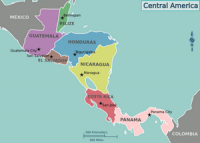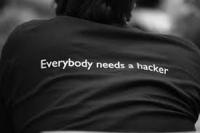-
China: Determined to dominate cyberspace and AI
China is chasing dominance in emerging artificial intelligence (AI) technologies in both the private and military sectors, as a central part of its effort to be the leading global cyber power, Chris C. Demchak writes in the Bulletin of the Atomic Scientists. The rise of AI – a subset of cyber as are machine learning, quantum computing, and other new technologies – does not herald a new arms race equivalent to that of the Cold War. Rather, the concern should be on the profound disruption to the existing Westernized global order. In the 1990s, Western nations, led by the United States, created what Demchak calls a “Westernized national creation”: cyberspace. Cyberspace, however, has created a multitude of ubiquitous, embedded vulnerabilities whose easy exploitation directly accelerated the rise of an otherwise impoverished authoritarian and aggressive China. Today, no single democracy has the scale and sufficient resources alone to match the foreknowledge and strategic coherence of the newly confident and assertive China. There is thus a need to create a Cyber Operational Resilience Alliance (CORA) to provide the scale and collective strategic coherence required to ensure the future wellbeing and security of democracy in an overwhelmingly authoritarian, post-Western, cybered world.
-
-
Analysts: China trying to use Belt and Road meeting to counter U.S. influence
China is getting ready to welcome representatives from 150 nations, including senior leaders of 40 countries, to discuss its international infrastructure program at the second Belt and Road Forum, beginning Thursday and running through Saturday in Beijing. Analysts say it is not merely a conference on infrastructure building, but an attempt by China to display its popularity and power as a political rallying force.
-
-
Lasting U.S. preeminence: A review of Michael Beckley’s “Unrivaled”

The Economist last year proclaimed that the “Chinese century is well under way,” and that China is on its way to replacing the United States as the new global “hegemon.” Tufts University’s Michael Beckley says: Not so fast. He argues not only that U.S. preeminence is safer than most contemporary commentary would have one believe, but also that it is more resilient: “Unipolarity is not guaranteed to endure,” he concludes, “but present trends strongly suggest that it will last for many decades.”
-
-
Actively used private keys on the ethereum blockchain facilitate cryptocurrency theft

Researchers at Independent Security Evaluators (ISE) have discovered 732 actively used private keys on the Ethereum blockchain. The researchers also found that poorly implemented private key generation is also facilitating the theft of cryptocurrency.
-
-
Lucrative human smuggling business via Central America benefits many

A new report estimates that the smuggling of unlawful migrants from the Northern Triangle region of Central America—Guatemala, Honduras, and El Salvador—to the United States generated between $200 million and $2.3 billion for human smugglers in 2017.
-
-
The darker side of the dark web: Weapons trade

Debates over gun regulations make headlines across the world, but there’s an underground operation for weapons that has drawn very little attention – until now. Researchers crept into the dark web to investigate how firearms are anonymously bought and sold around the world.
-
-
Environmental “secondary perils” an increasing threat: Swiss Re

The catastrophe loss experience of the last two years is a wake-up call for the insurance industry, highlighting a trend of growing devastation wreaked by so-called ‘secondary perils’ – which are independent small to mid-sized events, or secondary effects of a primary disaster.
-
-
There’s a massive cybersecurity job gap – we should fill it by employing hackers

Cybersecurity incidents are gaining an increasingly high profile. These attacks are becoming increasingly sophisticated, using psychological manipulation as well as technology. To face these challenges, society needs cybersecurity professionals who can protect systems and mitigate damage. There is already an active population with a strong passion for cybersecurity – hackers.
-
-
China catching up to the U.S. in innovation
If China is only a copier, not an innovator, then the competitive threat it poses to advanced economies would be limited. But there is no reason to believe China won’t follow the path of “Asian tigers” that rapidly evolved from copiers to innovators, which poses a serious threat.
-
-
Securing blockchain technology for cryptocurrency and other applications
Cryptocurrency, or digital currency, was introduced in 2009 by Bitcoin, and the market has since expanded to include many other brands such as Ethereum, Ripple, Litecoin and Zcash. Because it is based on unique blockchain technology, a decentralized network that doesn’t require a third party to process transactions, cryptocurrency operates independently from the global banking system. The privacy that users of a network based on blockchain technology have, however, is a major drawback.
-
-
Nixon and Reagan tried closing the border to pressure Mexico – here’s what happened
Just a week ago, President Donald Trump appeared poised to take the drastic step of closing the U.S.-Mexico border to both trade and travel. But on 4 April, the president backpedaled and instead gave Mexico a year to stop the flow of drugs across the border. If that didn’t happen, he threatened, auto tariffs would be imposed – and the president suggested he might still close the border if that didn’t work. If Trump ever follows through on his threat and puts up a closed sign at the southern border, it wouldn’t be the first time. Twice in the last half-century the U.S. has tried to use the border to force Mexico to bend to America’s will. The ruse failed both times.
-
-
U.S. industries turn to feds for help in economic race with China
In the U.S. economic battle with China, the Chinese government is often portrayed as a kingmaker, making large investments in research and paving the way for Chinese companies to thrive. China, it turns out, is a good foil for U.S. industries as they ask the U.S. government to do more to help them compete globally.
-
-
Nagging security concerns over using Huawei’s tech in Europe
New report urges NATO members to look to emulate Britain, which created an entire government office to scrutinize Huawei’s products for security problems.
-
-
Supporting global companies against cyber threats
A consortium of U.K. cyber security experts is to support global businesses to tackle online threats and protect themselves from cybercrime. The Cyber Readiness for Boards project has been launched to explore the factors shaping U.K. board decisions around cyber risk and develop interventions to provide guidance and support.
-
-
Bigger than Huawei: U.S. broadens scrutiny of Chinese technology
A flurry of seemingly disconnected actions by the U.S. government to curb the involvement of Chinese technology firms in the U.S. economy over the past year reflects the Trump administration’s intensifying concern that those firms could — now or in the future — abet espionage by Beijing’s intelligence services.
-
More headlines
The long view
Need for National Information Clearinghouse for Cybercrime Data, Categorization of Cybercrimes: Report
There is an acute need for the U.S. to address its lack of overall governance and coordination of cybercrime statistics. A new report recommends that relevant federal agencies create or designate a national information clearinghouse to draw information from multiple sources of cybercrime data and establish connections to assist in criminal investigations.
Trying to “Bring Back” Manufacturing Jobs Is a Fool’s Errand
Advocates of recent populist policies like to focus on the supposed demise of manufacturing that occurred after the 1970s, but that focus is misleading. The populists’ bleak economic narrative ignores the truth that the service sector has always been a major driver of America’s success, for decades, even more so than manufacturing. Trying to “bring back” manufacturing jobs, through harmful tariffs or other industrial policies, is destined to end badly for Americans. It makes about as much sense as trying to “bring back” all those farm jobs we had before the 1870s.
The Potential Impact of Seabed Mining on Critical Mineral Supply Chains and Global Geopolitics
The potential emergence of a seabed mining industry has important ramifications for the diversification of critical mineral supply chains, revenues for developing nations with substantial terrestrial mining sectors, and global geopolitics.
Are We Ready for a ‘DeepSeek for Bioweapons’?
Anthropic’s Claude 4 is a warning sign: AI that can help build bioweapons is coming, and could be widely available soon. Steven Adler writes that we need to be prepared for the consequences: “like a freely downloadable ‘DeepSeek for bioweapons,’ available across the internet, loadable to the computer of any amateur scientist who wishes to cause mass harm. With Anthropic’s Claude Opus 4 having finally triggered this level of safety risk, the clock is now ticking.”
